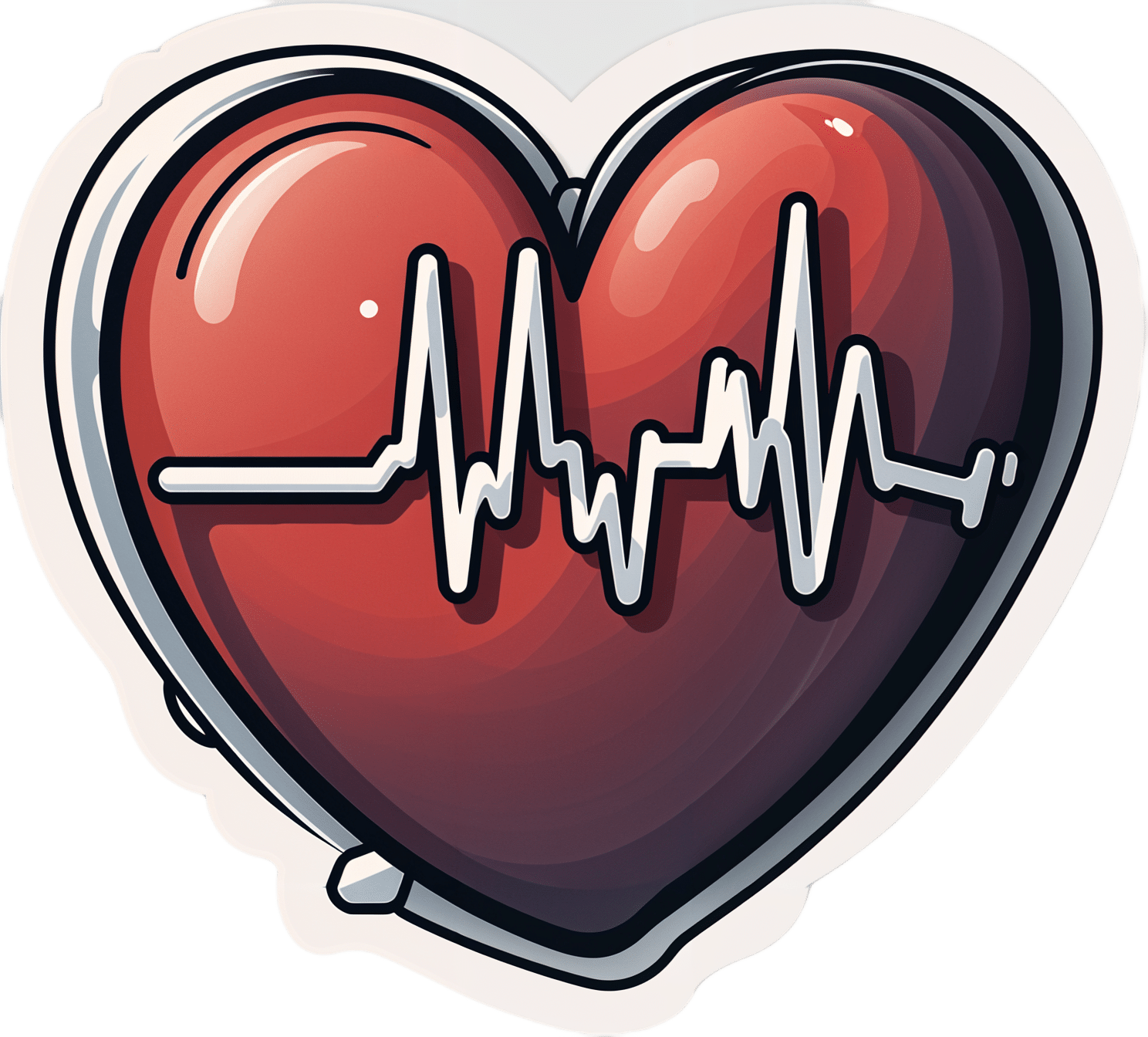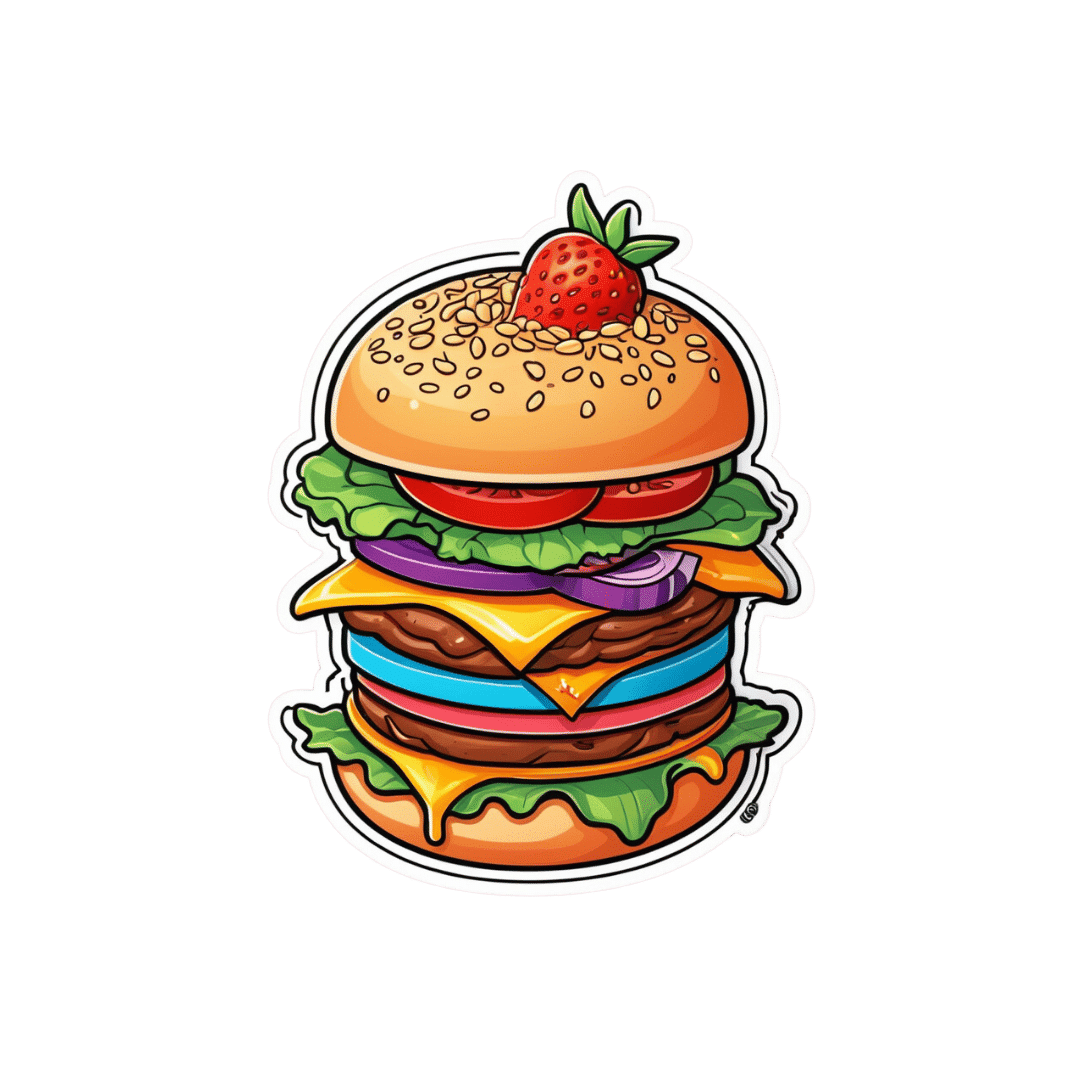
What Grief Does To Your Body (And How To Manage It)
10almonds is reader-supported. We may, at no cost to you, receive a portion of sales if you purchase a product through a link in this article.
What Grief Does To The Body (And How To Manage It)
In life, we will almost all lose loved ones and suffer bereavement. For most people, this starts with grandparents, eventually moves to parents, and then people our own generation; partners, siblings, close friends. And of course, sometimes and perhaps most devastatingly, we can lose people younger than ourselves.
For something that almost everyone suffers, there is often very little in the way of preparation given beforehand, and afterwards, a condolences card is nice but can’t do a lot for our mental health.
And with mental health, our physical health can go too, if we very understandably neglect it at such a time.
So, how to survive devastating loss, and come out the other side, hopefully thriving? It seems like a tall order indeed.
First, the foundations:
You’re probably familiar with the stages of grief. In their most commonly-presented form, they are:
- Denial
- Anger
- Bargaining
- Depression
- Acceptance
You’ve probably also heard/read that we won’t always go through them in order, and also that grief is deeply personal and proceeds on its own timescale.
It is generally considered healthy to go through them.
What do they look like?
Naturally this can vary a lot from person to person, but examples in the case of bereavement could be:
- Denial: “This surely has not really happened; I’ll carry on as though it hasn’t”
- Anger: “Why didn’t I do xyz differently while I had the chance?!”
- Bargaining: “I will do such-and-such in their honor, and this will be a way of expressing the love I wish I could give them in a way they could receive”
- Depression: “What is the point of me without them? The sooner I join them, the better.”
- Acceptance: “I was so lucky that we had the time together that we did, and enriched each other’s lives while we could”
We can speedrun these or we can get stuck on one for years. We can bounce back and forth. We can think we’re at acceptance, and then a previous stage will hit us like a tonne of bricks.
What if we don’t?
Assuming that our lost loved one was indeed a loved one (as opposed to someone we are merely societally expected to mourn), then failing to process that grief will tend to have a big impact on our life—and health. These health problems can include:
As you can see, three out of five of those can result in death. The other two aren’t great either. So why isn’t this taken more seriously as a matter of health?
Death is, ironically, considered something we “just have to live with”.
But how?
Coping strategies
You’ll note that most of the stages of grief are not enjoyable per se. For this reason, it’s common to try to avoid them—hence denial usually being first.
But, that is like not getting a lump checked out because you don’t want a cancer diagnosis. The emotional reasoning is understandable, but it’s ultimately self-destructive.
First, have a plan. If a death is foreseen, you can even work out this plan together.
But even if that time has now passed, it’s “better late than never” to make a plan for looking after yourself, e.g:
- How you will try to get enough sleep (tricky, but sincerely try)
- How you will remember to eat (and ideally, healthily)
- How you will still get exercise (a walk in the park is fine; see some greenery and get some sunlight)
- How you will avoid self-destructive urges (from indirect, e.g. drinking, to direct, e.g. suicidality)
- How you will keep up with the other things important in your life (work, friends, family)
- How you will actively work to process your grief (e.g. journaling, or perhaps grief counselling)
Some previous articles of ours that may help:
- How To Keep On Keeping On ← this is about looking after general health when motivation is low
- The Mental Health First-Aid You’ll Hopefully Never Need ← this is about managing depression
- How To Stay Alive (When You Really Don’t Want To) ← this is about managing suicidality
- Life After Death? (Your Life; A Loved One’s Death) ← this is about bereavement and romance
If it works, it works
If we are all unique, then any relationship between any two people is uniqueness squared. Little wonder, then, that our grief may be unique too. And it can be complicated further:
- Sometimes we had a complicated relationship with someone
- Sometimes the circumstances of their death were complicated
There is, for that matter, such a thing as “complicated grief”:
Read more: Complicated grief and prolonged grief disorder (Medical News Today)
We also previously reviewed a book on “ambiguous loss”, exploring grieving when we cannot grieve in the normal way because someone is gone and/but/maybe not gone.
For example, if someone is in a long-term coma from which they may never recover, or if they are missing-presumed-dead. Those kinds of situations are complicated too.
Unusual circumstances may call for unusual coping strategies, so how can we discern what is healthy and what isn’t?
The litmus test is: is it enabling you to continue going about your life in a way that allows you to fulfil your internal personal aspirations and external social responsibilities? If so, it’s probably healthy.
Look after yourself. And if you can, tell your loved ones you love them today.
Don’t Forget…
Did you arrive here from our newsletter? Don’t forget to return to the email to continue learning!
Recommended
Learn to Age Gracefully
Join the 98k+ American women taking control of their health & aging with our 100% free (and fun!) daily emails:
-
Heart Rate Zones, Oxalates, & More
10almonds is reader-supported. We may, at no cost to you, receive a portion of sales if you purchase a product through a link in this article.
It’s Q&A Day at 10almonds!
Have a question or a request? You can always hit “reply” to any of our emails, or use the feedback widget at the bottom!
In cases where we’ve already covered something, we might link to what we wrote before, but will always be happy to revisit any of our topics again in the future too—there’s always more to say!
As ever: if the question/request can be answered briefly, we’ll do it here in our Q&A Thursday edition. If not, we’ll make a main feature of it shortly afterwards!
So, no question/request too big or small
❝I think the heart may be an issue for lots of us. I know it is for me due to AFib. When I’m in my training zone like on a treadmill, I’m usually around 110 to 120. But there are occasionally times when I’m at 140 or 150. How dangerous is that? If I use that formula of 180 minus age, thats 103. I get nothing from that. My resting heart rate is in the 50 to 60 range.❞
First, for safety, let us draw attention to our medical disclaimer at the bottom of each email, and also specifically note that we are not cardiologists here, let alone your cardiologist. There’s a lot we can’t know or advise about. However, as general rules of thumb:
For people without serious health conditions, it is considered good and healthful for one’s heart rate to double (from its resting rate) during exercise, with even more than 2.5x resting rate being nothing more than a good cardio workout.
As for “180 minus age” (presuming you mean: to calculate the safe maximum heart rate), more common (and used by the American Heart Association) is 220 minus age. In your case, that’d give 143.
Having atrial fibrillation may change this however, and we can’t offer medical advice.
We can point to this AHA “AFib Resources For Patients and Professionals”, including this handy FAQ sheet which says:
“Am I able to exercise?” / “Yes, as long as you’re cleared by your doctor, you can perform normal activities of daily living that you can tolerate” (accompanied by a little graphic of a person using an exercise bike)
You personally probably know this already, of course, but it’s quite an extensive collection of resources, so we thought we’d include it.
It’s certainly a good idea for everyone to be aware of their healthy heart rate ranges, regardless of having a known heart condition or not, though!
American Heart Association: Target Heart Rates Chart
❝I would like to see some articles on osteoporosis❞
You might enjoy this mythbusting main feature we did a few weeks ago!
The Bare-Bones Truth About Osteoporosis
❝Interesting, but… Did you know spinach is high in oxylates? Some people are sensitive and can cause increased inflammation, joint pain or even kidney stones. Moderation is key. My sister and I like to eat healthy but found out by experience that too much spinach salad caused us joint and other aches.❞
It’s certainly good to be mindful of such things! For most people, a daily serving of spinach shouldn’t cause ill effects, and certainly there are other greens to eat.
We wondered whether there was a way to reduce the oxalate content, and we found:
How to Reduce Oxalic Acid in Spinach: Neutralizing Oxalates
…which led us this product on Amazon:
Nephure Oxalate Reducing Enzyme, Low Oxalate Diet Support
We wondered what “nephure” was, and whether it could be trusted, and came across this “Supplement Police” article about it:
Nephure Review – Oxalate Reducing Enzyme Powder Health Benefits?
…which honestly, seems to have been written as a paid advertisement. But! It did reference a study, which we were able to look up, and find:
In vitro and in vivo safety evaluation of Nephure™
…which seems to indicate that it was safe (for rats) in all the ways that they checked. They did not, however, check whether it actually reduced oxalate content in spinach or any other food.
The authors did declare a conflict of interest, in that they had a financial relationship with the sponsor of the study, Captozyme Inc.
All in all, it may be better to just have kale instead of spinach:
- 20 Foods High in Oxalates to Limit if You Have Kidney Stones
- The Kidney Dietician: The Best Low Oxalate Greens
We turn the tables and ask you a question!
We’ll then talk about this tomorrow:
Share This Post
-
What’s the difference between a food allergy and an intolerance?
10almonds is reader-supported. We may, at no cost to you, receive a portion of sales if you purchase a product through a link in this article.
At one time or another, you’ve probably come across someone who is lactose intolerant and might experience some unpleasant gut symptoms if they have dairy. Maybe it’s you – food intolerances are estimated to affect up to 25% of Australians.
Meanwhile, cow’s milk allergy is one of the most common food allergies in infants and young children, affecting around one in 100 infants.
But what’s the difference between food allergies and food intolerances? While they might seem alike, there are some fundamental differences between the two.
Feel good studio/Shutterstock What is an allergy?
Australia has one of the highest rates of food allergies in the world. Food allergies can develop at any age but are more common in children, affecting more than 10% of one-year-olds and 6% of children at age ten.
A food allergy happens when the body’s immune system mistakenly reacts to certain foods as if they were dangerous. The most common foods that trigger allergies include eggs, peanuts and other nuts, milk, shellfish, fish, soy and wheat.
Mild to moderate signs of food allergy include a swollen face, lips or eyes; hives or welts on your skin; or vomiting. A severe allergic reaction (called anaphylaxis) can cause trouble breathing, persistent dizziness or collapse.
What is an intolerance?
Food intolerances (sometimes called non-allergic reactions) are also reactions to food, but they don’t involve your immune system.
For example, lactose intolerance is a metabolic condition that happens when the body doesn’t produce enough lactase. This enzyme is needed to break down the lactose (a type of sugar) in dairy products.
Food intolerances can also include reactions to natural chemicals in foods (such as salicylates, found in some fruits, vegetables, herbs and spices) and problems with artificial preservatives or flavour enhancers.
Lactose intolerance is caused by a problem with breaking down lactose in milk. Pormezz/Shutterstock Symptoms of food intolerances can include an upset stomach, headaches and fatigue, among others.
Food intolerances don’t cause life-threatening reactions (anaphylaxis) so are less dangerous than allergies in the short term, although they can cause problems in the longer term such as malnutrition.
We don’t know a lot about how common food intolerances are, but they appear to be more commonly reported than allergies. They can develop at any age.
It can be confusing
Some foods, such as peanuts and tree nuts, are more often associated with allergy. Other foods or ingredients, such as caffeine, are more often associated with intolerance.
Meanwhile, certain foods, such as cow’s milk and wheat or gluten (a protein found in wheat, rye and barley), can cause both allergic and non-allergic reactions in different people. But these reactions, even when they’re caused by the same foods, are quite different.
For example, children with a cow’s milk allergy can react to very small amounts of milk, and serious reactions (such as throat swelling or difficulty breathing) can happen within minutes. Conversely, many people with lactose intolerance can tolerate small amounts of lactose without symptoms.
There are other differences too. Cow’s milk allergy is more common in children, though many infants will grow out of this allergy during childhood.
Lactose intolerance is more common in adults, but can also sometimes be temporary. One type of lactose intolerance, secondary lactase deficiency, can be caused by damage to the gut after infection or with medication use (such as antibiotics or cancer treatment). This can go away by itself when the underlying condition resolves or the person stops using the relevant medication.
Whether an allergy or intolerance is likely to be lifelong depends on the food and the reason that the child or adult is reacting to it.
Allergies to some foods, such as milk, egg, wheat and soy, often resolve during childhood, whereas allergies to nuts, fish or shellfish, often (but not always) persist into adulthood. We don’t know much about how likely children are to grow out of different types of food intolerances.
How do you find out what’s wrong?
If you think you may have a food allergy or intolerance, see a doctor.
Allergy tests help doctors find out which foods might be causing your allergic reactions (but can’t diagnose food intolerances). There are two common types: skin prick tests and blood tests.
In a skin prick test, doctors put tiny amounts of allergens (the things that can cause allergies) on your skin and make small pricks to see if your body reacts.
A blood test checks for allergen-specific immunoglobulin E (IgE) antibodies in your blood that show if you might be allergic to a particular food.
Blood tests can help diagnose allergies. RossHelen/Shutterstock Food intolerances can be tricky to figure out because the symptoms depend on what foods you eat and how much. To diagnose them, doctors look at your health history, and may do some tests (such as a breath test). They may ask you to keep a record of foods you eat and timing of symptoms.
A temporary elimination diet, where you stop eating certain foods, can also help to work out which foods you might be intolerant to. But this should only be done with the help of a doctor or dietitian, because eliminating particular foods can lead to nutritional deficiencies, especially in children.
Is there a cure?
There’s currently no cure for food allergies or intolerances. For allergies in particular, it’s important to strictly avoid allergens. This means reading food labels carefully and being vigilant when eating out.
However, researchers are studying a treatment called oral immunotherapy, which may help some people with food allergies become less sensitive to certain foods.
Whether you have a food allergy or intolerance, your doctor or dietitian can help you to make sure you’re eating the right foods.
Victoria Gibson, a Higher Degree by Research student and Research Officer at the School of Nursing, Midwifery and Social Work at the University of Queensland, and Rani Scott-Farmer, a Senior Research Assistant at the University of Queensland, contributed to this article.
Jennifer Koplin, Group Leader, Childhood Allergy & Epidemiology, The University of Queensland and Desalegn Markos Shifti, Postdoctoral Research Fellow, Child Health Research Centre, Faculty of Medicine, The University of Queensland
This article is republished from The Conversation under a Creative Commons license. Read the original article.
Share This Post
-
What Your Brain Is Really Doing When You’re Doing “Nothing”
10almonds is reader-supported. We may, at no cost to you, receive a portion of sales if you purchase a product through a link in this article.
Unless we are dead, our brain is never truly inactive. And it’s not just a matter of regulating autonomic functions, either…
Default Mode Network
When the brain is at rest but not necessarily asleep, the Default Mode Network (DMN) engages. This makes up for around 20% of the brain’s overall activity, and contributes to complex cognitive processes.
What constitutes “at rest”: the DMN activates when external tasks stop and is engaged during self-reflection, mind-wandering, and relaxed memory recall (i.e. reminiscing, rather than answering questions in a difficult test, for example).
As for its neurophysiology, the DMN is connected to the hippocampus and plays a key role in episodic, prospective, and semantic memory (memories of experiences, future plans, and general knowledge), as well as being involved in self-reflection, social cognition, and understanding others’ thoughts (theory of mind). The DMN thus also helps integrate memories and thoughts to create a cohesive internal narrative and sense of self.
However, it doesn’t work alone: the DMN interacts with other networks like the salience network, which switches attention to external stimuli. Disruptions between these networks are linked to psychiatric disorders (e.g., schizophrenia, Alzheimer’s, depression), in various different ways depending on the nature of the disruption.
Sometimes, for some people in some circumstances, the option to disrupt the DMN is useful. For example, research shows that psilocybin disrupts the DMN, leading to changes in brain activity and potential therapeutic benefits for depression* and other psychiatric disorders by enhancing neuroplasticity.
*Essentially, kicking the brain out of the idling gear it got stuck in, and into action
For more on all of this, enjoy:
Click Here If The Embedded Video Doesn’t Load Automatically!
Want to learn more?
You might also like to read:
- The Wandering Mind – by Dr. Michael Corballis ← a book, largely about the DMN and how to use it beneficially
- Taking A Trip Through The Evidence On Psychedelics ← for a shorter read, touching on psilocybin
Take care!
Share This Post
Related Posts
-
Quick Healthy Recipe Ideas
10almonds is reader-supported. We may, at no cost to you, receive a portion of sales if you purchase a product through a link in this article.
It’s Q&A Day at 10almonds!
Have a question or a request? You can always hit “reply” to any of our emails, or use the feedback widget at the bottom!
In cases where we’ve already covered something, we might link to what we wrote before, but will always be happy to revisit any of our topics again in the future too—there’s always more to say!
As ever: if the question/request can be answered briefly, we’ll do it here in our Q&A Thursday edition. If not, we’ll make a main feature of it shortly afterwards!
So, no question/request too big or small
“It was superb !! Just loved that healthy recipe !!! I would love to see one of those every day, if possible !! Keep up the fabulous work !!! ”
We’re glad you enjoyed! We can’t promise a recipe every day, but here’s one just for you:
Don’t Forget…
Did you arrive here from our newsletter? Don’t forget to return to the email to continue learning!
Learn to Age Gracefully
Join the 98k+ American women taking control of their health & aging with our 100% free (and fun!) daily emails:
-
Which B Vitamins? It Makes A Difference
10almonds is reader-supported. We may, at no cost to you, receive a portion of sales if you purchase a product through a link in this article.
Everyone knows “B vitamins are for energy!” and that is definitely a theme, but there’s a lot more to it than that, and in some cases, there are big mistakes that people make when it comes to supplementing their diet.
First, let’s do a quick overview of what each of the B vitamins do, by number, and putting names to them:
B1 (Thiamine)
- Function: helps convert carbohydrates into energy, supports nerve function
- Forms: thiamine hydrochloride, thiamine mononitrate, benfotiamine (fat-soluble form)
- Example foods: lentils, sunflower seeds
B2 (Riboflavin)
- Function: supports energy production, skin health, and eye function, turns your pee fluorescent yellow (the latter is really only if you consume exciting amounts of it; this will usually occur from supplementation, not from normal diet)
- Forms: riboflavin, riboflavin-5’-phosphate
- Example foods: almonds, mushrooms
B3 (Niacin)
- Function: aids metabolism, supports skin, nerves, and cholesterol levels
- Forms: niacin (nicotinic acid), niacinamide (nicotinamide), inositol hexanicotinate (flush-free niacin)
- Example foods: whole grains, peanuts (literally the best nut for this)
B5 (Pantothenic Acid)
- Function: essential for fatty acid metabolism and hormone production
- Forms: pantothenic acid, calcium pantothenate, panthenol (alcohol form!)
- Example foods: it’s in pretty much everything (hence the name); it’s almost impossible to be deficient in this vitamin unless you are literally starving
B6 (Pyridoxine)
- Function: needed for red blood cell production, supports brain function, as well as specifically being a part of neurotransmitter production (including dopamine and serotonin, despite them being made in different places—the brain and the gut, respectively),
- Forms: pyridoxine hydrochloride, pyridoxal-5’-phosphate (active form)
- Example foods: bananas, potatoes
B7 (Biotin)
- Function: helps with fatty acid synthesis, skin, hair, and nail health
- Forms: d-biotin, biotinylated compounds of various kinds
- Example foods: fava beans, walnuts
B9 (Folate/Folic Acid)
- Function: crucial for DNA synthesis, cell division, and fetal development
- Forms: folic acid, folinic acid, 5-methyltetrahydrofolate (5-MTHF, active form)
- Example foods: chickpeas, spinach ← we only mentioned one leafy green here for fairness, but leafy greens in general are great sources of vitamin B9, hence the name, from the Latin “folium”, meaning leaf.
B12 (Cobalamin)
- Function: supports red blood cell formation, nerve function, and DNA synthesis
- Forms: cyanocobalamin, methylcobalamin (active), hydroxocobalamin (active), adenosylcobalamin (active)
- Example foods: nutritional yeast, nori
You may be wondering: what about vitamins B4, B8, B10, and B11? Those are now vacant spots, that once contained things that are no longer considered vitamins.
Three Critical Vitamin B Mistakes That May Be Sabotaging Your Health
Some mistakes that people make include:
Not supplementing when necessary
This occurs most often after midlife, especially in women, and the most common deficiencies are B1, B9, and B12.
See also: These Signs Often Mean These Nutrient Deficiencies (Do You Have Any?)
While it’s tempting to think “if I have a good balanced diet, I won’t need…” but the fact is sometimes our diet isn’t as nutrient dense as we hope—often through no fault of our own! But many modern farming methods prioritize yield over nutritional value, and that can result in plants and animals that do not have the nutritional qualities they “should”.
We wrote about this a while back, weighing up the “supplementation vs diet alone” dilemma:
Does Our Diet Need A Little Help? ← this also has a very useful chart of which vitamins people usually get too little or too much of. Note however that the statement of marginally excessive folate is slightly misleading, as the data pool contains men and women aged 18–65, while B9 is mostly needed more by women, and especially around childbirth or menopause, so B9 is actually a very common deficiency, but here it’s being balanced out lots of men getting too much (because every multivitamin has it).
Supplementing to excess
Most B vitamins have a very high maximum tolerable dose, because (with the exception of where we marked otherwise) they are water-soluble, which means that if you take more than you need, you’ll just pee it out later. Hence the famous fluorescence, for example.
However, the fat soluble form of vitamin B1 is harder to get in and harder to get out.
As for the others, problems usually only occur if you take enough to cause toxicity, faster than you pee it out. In other words, go easy on those Berocca drinks!
Nevertheless, there are other problems that can arise:
Vitamin B6 is essential—but too much can be toxic. Here’s what to know to stay safe ← tl;dr: there are issues with it causing peripheral neuropathy at doses over 10mg (the safe dose is disputed, so we’re mentioning the lowest safe dose here, but you can read about the others in the article)
Getting forms that don’t work so well
Those different forms we listed? They are not all created equal! For example:
- Folic acid is cheap; unfortunately, it’s not absorbed or used well
- Cyanocobalamin is cheap; unfortunately, it’s not absorbed or used well
Let us quote a recent book review of ours:
❝Rather, the most common forms of vitamins B9 and B12 provided in supplements are folic acid and cyanocobalamin, respectively, which as he demonstrates with extensive research to back up his claims, cannot be easily absorbed or used especially well.
About those vitamers: a vitamer is simply a form of a vitamin—most vitamins we need can arrive in a variety of forms. In the case of vitamins B9 and B12, he advocates for ditching vitamers folic acid and cyanocobalamin, cheap as they are, and springing for bioactive vitamers L-methylfolate, methylcobalamin, and adenosylcobalamin.
He also discusses (again, just as well-evidenced as the above things) why we might struggle to get enough from our diet after a certain age. For example, if trying to get these vitamins from meat, 50% of people over 50 cannot manufacture enough stomach acid to break down that protein to release the vitamins.
And as for methyl-B12 vitamers, you might expect you can get those from meat, and technically you can, but they don’t occur in all animals, just in one kind of animal. Specifically, the kind that has the largest brain-to-body ratio. However, eating the meat of this animal can result in protein folding errors in general and Creutzfeldt–Jakob disease in particular, so the author does not recommend eating humans, however nutritionally convenient that would be.
All this means that supplementation after a certain age really can be a sensible way to do it—but do it wisely, and pick the right vitamers.❞
You can read that review in full here: Your Vitamins are Obsolete: The Vitamer Revolution – by Dr. Sheldon Zablow
Want to try those latter two?
We don’t sell them, but here for your convenience are example products on Amazon:
L-methylfolate (active form of vitamin B9)
Methylcobalamin, adenosylcobalamin, & hydroxocobalamin (active forms of vitamin B12)
Take care!
Don’t Forget…
Did you arrive here from our newsletter? Don’t forget to return to the email to continue learning!
Learn to Age Gracefully
Join the 98k+ American women taking control of their health & aging with our 100% free (and fun!) daily emails:
-
The Plant-Based Athlete – by Matt Frazier and Robert Cheeke
10almonds is reader-supported. We may, at no cost to you, receive a portion of sales if you purchase a product through a link in this article.
If you’re already a seasoned plant-based athlete yourself, you can probably skip this book; the 60 recipes at the end would still provide value, but there is the “No Meat Athlete Cookbook” that you could hop straight to, in any case.
For most readers, there will be plenty of value from start to finish. We get a quick ground-up tour of nutrition basics, before getting into restructuring diet to optimize it for performance.
There is less in the way of “Vegans struggle with…” and more in the way of “People think vegans struggle with…” and explanations of what vegan athletes actually eat. The book does include science, but isn’t too science-heavy, and relies more on modelling what plant-based superathletes enjoy on a daily basis.
To that end,if the book has a weak point, it’s perhaps that it could have stood to include more science. The book comes recommended by Dr. Michael Greger, whose nutritional approach is incredibly science-heavy and well-referenced, and this book is obviously compatible with that (so they could have!), but in this case Frazier and Cheeke leave us to take their word for it.
Nevertheless, the science is good whether they cite it or not, and this book is quite a comprehensive primer of plant-based athleticism.
Bottom line: if you’re wondering how to optimize the two goals of “eating plants” and “being a powerful athlete”, then this one’s the book for you.
Click here to check out The Plant-Based Athlete and upgrade your health and athletic performance!
Don’t Forget…
Did you arrive here from our newsletter? Don’t forget to return to the email to continue learning!
Learn to Age Gracefully
Join the 98k+ American women taking control of their health & aging with our 100% free (and fun!) daily emails:










